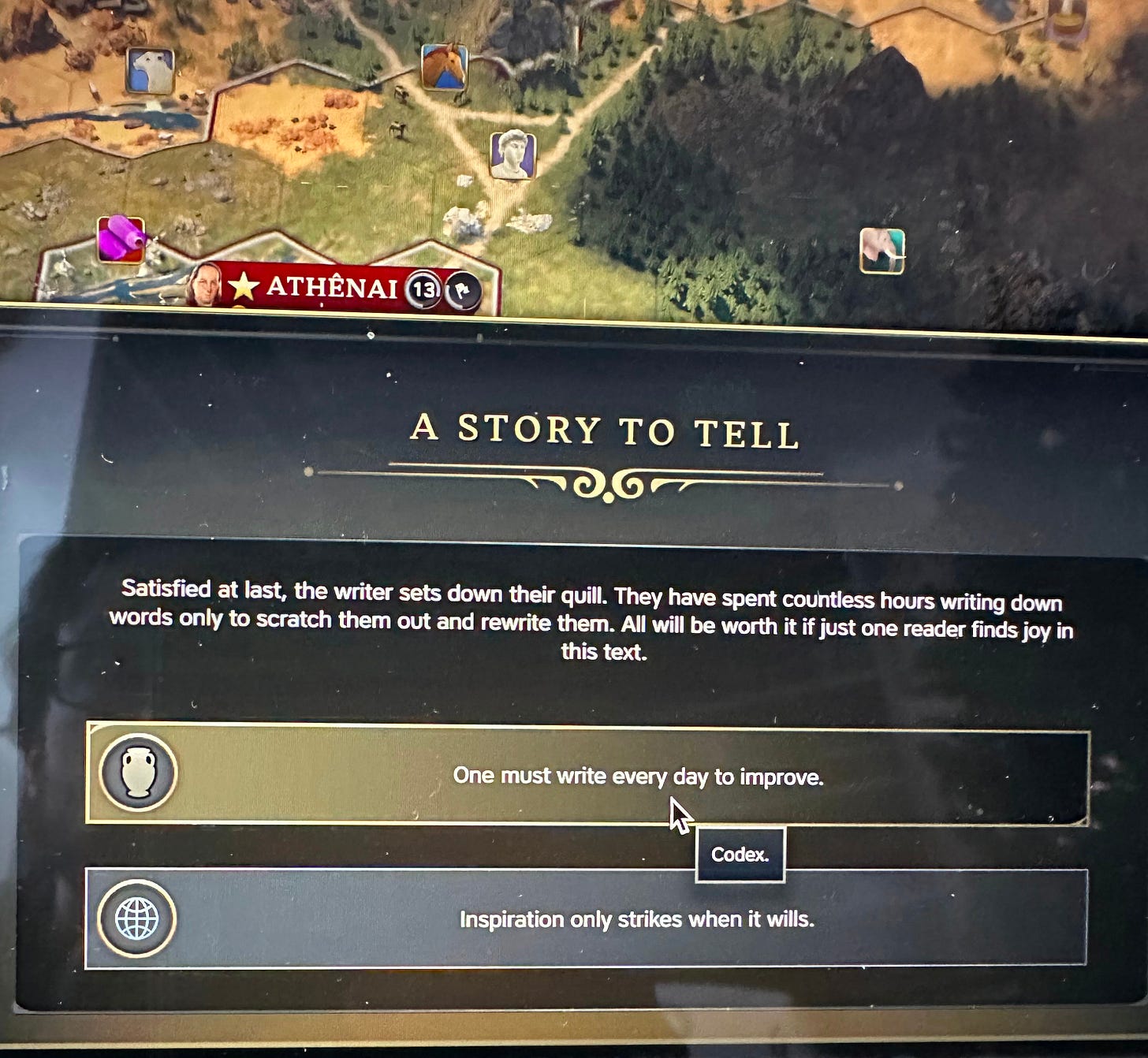Three Sacred Pieces of Writing Wisdom
Three Point Thursday
Hola amigo,
Happy Three Point Thursday!
This week’s edition features writing wisdom from three different legendary authors.
John Steinbeck.
Now let me give you the benefit of my experience in facing 400 pages of blank stock—the appalling stuff that must be filled. I know that no one really wants the benefit of anyone’s experience which is probably why it is so freely offered. But the following are some of the things I have had to do to keep from going nuts.
Abandon the idea that you are ever going to finish. Lose track of the 400 pages and write just one page for each day, it helps. Then when it gets finished, you are always surprised.
Write freely and as rapidly as possible and throw the whole thing on paper. Never correct or rewrite until the whole thing is down. Rewrite in process is usually found to be an excuse for not going on. It also interferes with fow and rhythm which can only come from a kind of unconscious association with the material.
Forget your generalized audience. In the first place, the nameless, faceless audience will scare you to death and in the second place, unlike the theatre, it doesn’t exist. In writing, your audience is one single reader. I have found that sometimes it helps to pick out one person—a real person you know, or an imagined person and write to that one.
If a scene or a section gets the better of you and you still think you want it-bypass it and go on. When you have finished the whole you can come back to it and then you may find that the reason it gave trouble is because it didn’t belong there.
Beware of a scene that becomes too dear to you, dearer than the rest. It will usually be found that it is out of drawing.
If you are using dialogue—say it aloud as you write it. Only then will it have the sound of speech.
C.S. Lewis.
It is very hard to give any general advice about writing.
Here’s my attempt.
(1) Turn off the Radio.
(2) Read all the good books you can, and avoid nearly all maga-zines.
(3) Always write (and read) with the ear, not the eye. You shd. hear every sentence you write as if it was being read aloud or spoken. If it does not sound nice, try again.
(4) Write about what really interests you, whether it is real things or imaginary things, and nothing else. (Notice this means that if you are interested only in writing you will never be a writer, because you will have nothing to write about ...)
(5) Take great pains to be clear. Remember that though you start by knowing what you mean, the reader doesn’t, and a single ill-chosen word may lead him to a total misunderstanding. In a story it is terribly easy just to forget that you have not told the reader something that he wants to know-the whole picture is so clear in your own mind that you forget that it isn’t the same in his.
(6) When you give up a bit of work don’t (unless it is hopelessly bad) throw it away. Put it in a drawer. It may come in useful later. Much of my best work, or what I think my best, is the rewriting of things begun and abandoned years earlier.
(7) Don’t use a typewriter. The noise will destroy your sense of rhythm, which still needs years of training
(8) Be sure you know the meaning (or meanings) of every word you use.
Ernest Hemingway.
I would stand and look out over the roofs of Paris and think. ‘Do not worry. You have always written before and you will write now. All you have to do is write one true sentence. Write the truest sentence that you know? So finally I would write one true sentence, and then go on from there. It was easy then because there was always one true sentence that I knew or had seen or had heard someone say. If I started to write elaborately, or like someone introducing or presenting something, I found that I could cut that scroll-work or ornament out and throw it away and start with the first true simple declarative sentence I had written.
Keep shooting,
Jeff



WONDERFUL JEFF AND SO HELPFUL AND REASURRING! ORALE,JAIMITO
Great advice.
I should try to follow at least some of it 😬